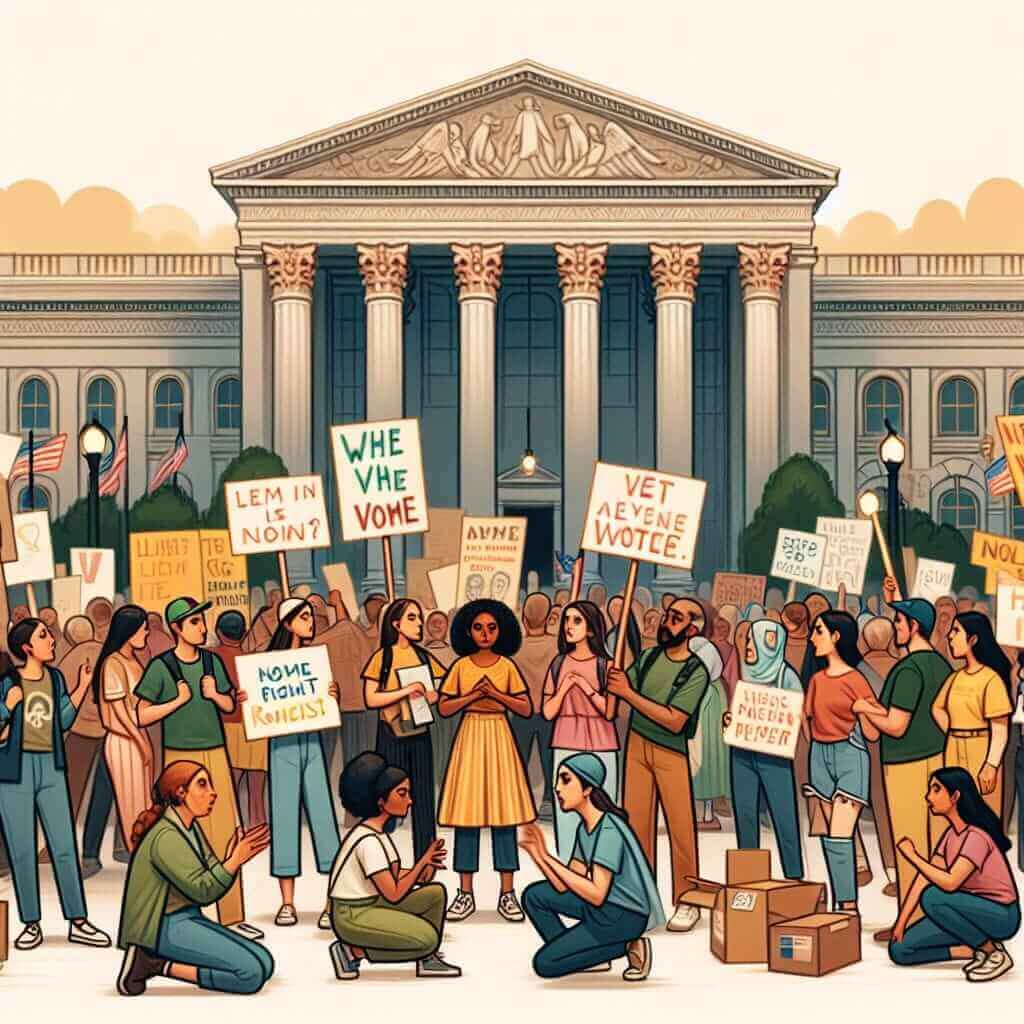The influence of political lobbying on public policy is a topic that frequently appears in IELTS Writing Task 2, requiring test-takers to demonstrate their ability to analyze complex societal issues. This article will delve into the intricacies of this topic, providing a comprehensive understanding of political lobbying, its impact on public policy, and valuable insights for crafting a compelling IELTS essay.
IELTS Writing Task 2 Sample Questions
Here are some potential IELTS Writing Task 2 questions related to political lobbying:
- To what extent do you agree or disagree with the statement that political lobbying has an overwhelmingly negative influence on public policy?
- Discuss the positive and negative impacts of political lobbying on the development and implementation of public policy.
- Some people argue that political lobbying is essential for ensuring that diverse voices are heard in a democracy. Others believe it gives too much power to special interest groups. Discuss both views and give your own opinion.
Sample Essay: Political Lobbying and Public Policy
Let’s choose the first question from the list above to develop a sample essay:
To what extent do you agree or disagree with the statement that political lobbying has an overwhelmingly negative influence on public policy?
Essay Analysis
This question requires you to take a clear stance on whether political lobbying primarily exerts a negative influence on public policy. You need to provide well-structured arguments, supporting evidence, and examples to justify your viewpoint.
Sample Essay (Band 8 Target)
Political lobbying, the act of attempting to influence government decisions, is often viewed as a double-edged sword. While some argue that it plays a crucial role in representing diverse interests and ensuring informed decision-making, others contend that its influence on public policy is overwhelmingly negative. This essay will argue that while lobbying can have some positive aspects, its overall impact on policymaking is indeed detrimental.
On the one hand, proponents of lobbying highlight its potential benefits. They posit that lobbying groups provide valuable expertise and information to policymakers, especially on complex issues where specialized knowledge is crucial. For instance, medical research organizations might lobby for increased funding for specific diseases, providing crucial data and insights that lawmakers might not otherwise possess. Additionally, lobbying can empower marginalized groups and give them a voice in the political process. Groups representing minorities or those with specific concerns can leverage lobbying efforts to ensure their needs and perspectives are considered during policy formulation.
However, the negative consequences of political lobbying far outweigh these potential benefits. Firstly, lobbying can create an uneven playing field where wealthy corporations and special interest groups wield disproportionate influence over policymakers. This can result in policies that prioritize corporate profits or narrow interests over the broader public good, exacerbating social inequalities and undermining democratic principles. A prime example is the influence of the fossil fuel industry on climate change policy, where powerful lobbying efforts have hindered progress towards sustainable solutions.
Moreover, the opaque nature of lobbying contributes to a lack of transparency and accountability in government decision-making. When backroom deals and undue influence overshadow open debate and public interest, it erodes public trust in political institutions. This can lead to apathy, cynicism, and a decline in civic engagement, further weakening the democratic process.
In conclusion, while political lobbying may offer some limited benefits, its overall impact on public policy is undeniably negative. The potential for undue influence, erosion of democratic values, and prioritization of narrow interests over the common good outweigh any potential advantages. To mitigate these negative consequences, it is crucial to implement stricter regulations on lobbying activities, enhance transparency in political financing, and empower citizens to hold their elected officials accountable.
Word count: 320 words

Writing Tips and Vocabulary
- Structure: Follow a clear essay structure (introduction, body paragraphs, conclusion) and use topic sentences to introduce each paragraph’s main idea.
- Vocabulary: Use a wide range of vocabulary related to politics, influence, and public policy. Avoid repetition and aim for precision in word choice.
- Grammar: Use a variety of sentence structures and ensure grammatical accuracy throughout your essay.
- Examples: Provide relevant and specific examples to support your arguments. These could be historical events, current affairs, or hypothetical scenarios.
Difficult Vocabulary
- Lobbying (noun): /ˈlɒbiɪŋ/ The act of trying to influence politicians or government officials to make decisions that favor a particular group or cause.
- Overwhelmingly (adverb): /ˌəʊvəˈwelmɪŋli/ To a very great degree or with very great force.
- Detrimental (adjective): /ˌdetrɪˈmentl/ Causing harm or damage.
- Proponents (noun): /prəˈpəʊnənts/ People who speak publicly in support of a particular idea or plan of action.
- Marginalized (adjective): /ˈmɑːdʒɪnəlaɪzd/ Treated as insignificant or peripheral.
- Disproportionate (adjective): /ˌdɪsprəˈpɔːʃənət/ Too large or too small in comparison with something else.
- Exacerbate (verb): /ɪɡˈzæsəbeɪt/ To make something that is already bad even worse.
- Opaque (adjective): /əʊˈpeɪk/ Not transparent; not allowing light to pass through.
- Apathy (noun): /ˈæpəθi/ A lack of interest, enthusiasm, or concern.
- Cynicism (noun): /ˈsɪnɪsɪzəm/ A belief that people are motivated purely by self-interest rather than by unselfishness or moral considerations.
By following these tips and familiarizing yourself with the relevant vocabulary, you can confidently approach IELTS Writing Task 2 questions on the influence of political lobbying and achieve a high band score. Remember to practice regularly, analyze sample essays, and seek feedback to improve your writing skills.